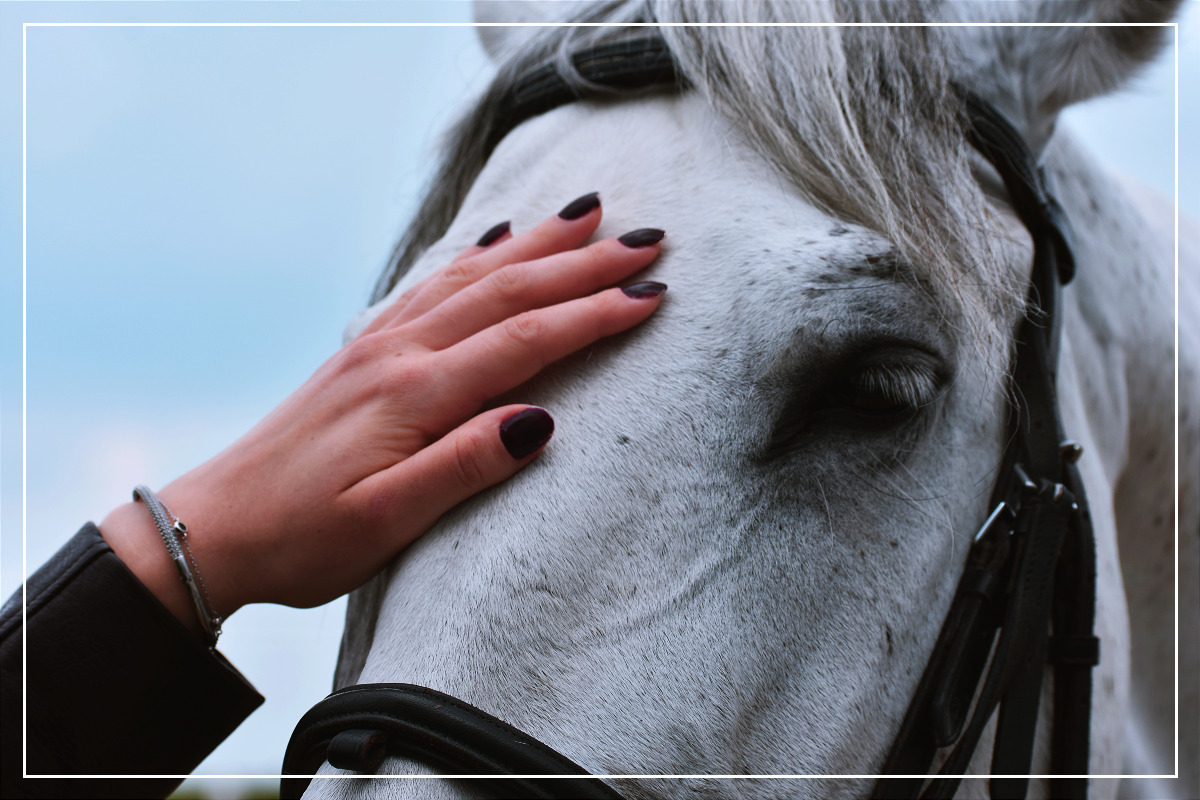
According to an article from the United States Census Bureau, in 2021 approximately 63.8 million out of 128.5 million households in the United States had at least one pet. It is clear that animals hold an important role in our lives as companions, family, and helpers. Maybe you have seen news stories of animals comforting people in hospitals or service dogs helping their owners. As humans, we have a special bond with animals. In particular, we have a special relationship with horses, which can be seen in equine therapy.
Here at The Guest House, we know and celebrate the innate bond that exists between people and animals. We celebrate our bond with horses through the exploration of the love and resiliency in that relationship.
What Is Equine Therapy?
As noted in an article from the NursingOpen, equine therapy or equine-assisted therapy (EAT) is part of a larger group of activities and interventions like equine‐assisted activities. Moreover, equine therapy can be defined as the therapeutic use of horses to support well-being in recovery. Thus, equine therapy is a broad term for a therapeutic modality that can incorporate multiple modalities, including therapeutic horseback riding.
In addition, bonding with a horse can support the development of important tools for coping and relationship-building in recovery.
Bonding in Recovery
According to an article in the Animals Journal, the physical and emotional connection that forms between humans and horses is primarily non-verbal. Your interaction with a horse is based on high levels of body-to-body contact that allows communication to grow between you. Emotional connection is fostered through your and the horse’s ability to engage in emotional intelligence to tune your emotions to each other. Moreover, the bond you form with the horse in recovery can function as a therapeutic alliance as trusted social support. Furthermore, the power of connection as a therapeutic tool in recovery can be seen in improved psychological outcomes.
Psychological Benefits of Equine Therapy
As noted by the journal Chronic Stress, listed below are some of the psychological benefits of forming a comforting and affectionate relationship with horses in equine therapy:
- Empowerment
- Increased self-esteem
- More self-confidence
- Sense of autonomy
- Increased competency
- A sense of freedom and independence
- Safe and nonjudgmental environment
- Enhancement of self-awareness
- Engagement in mindfulness
In addition, equine therapy can be a restorative therapeutic modality to rediscover the value of connection for well-being in recovery.
Finding Connection With Horses at the Guest House
We know forming mutually supportive connections is an important part of a sense of belonging that supports mental well-being. However, unaddressed trauma and mental health disorders can make it difficult to trust, engage, or maintain relationships. Therefore, at The Guest House, we utilize a wide range of holistic and therapeutic modalities like equine therapy to learn how to rebuild those interpersonal bonds and nature relationships. Moreover, working and bonding with horses is an opportunity to rediscover your capacity to care, love, trust, and form companionship on your recovery journey.
Humans have an innate bond with animals like horses. Therefore, with equine therapy, you can explore the human-animal bond to support healing. The non-verbal connection you develop with a horse can give you the tools to rediscover your ability to trust and form deep meaningful companionship. Through our commitment to individualized care, we offer therapeutic modalities and holistic approaches to care that give you the space to explore unique therapies to meet your specific needs. Call The Guest House at (855) 483-7800 to learn more today.